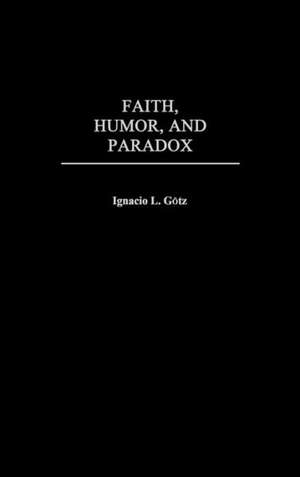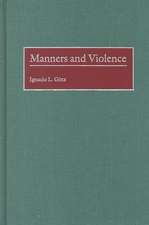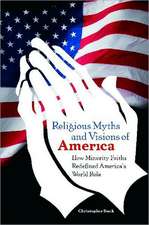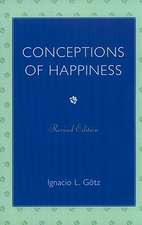Faith, Humor, and Paradox
Autor Ignacio L. Götzen Limba Engleză Hardback – 29 dec 2002 – vârsta până la 17 ani
Preț: 344.15 lei
Preț vechi: 475.39 lei
-28% Nou
Puncte Express: 516
Preț estimativ în valută:
65.85€ • 68.93$ • 54.81£
65.85€ • 68.93$ • 54.81£
Carte tipărită la comandă
Livrare economică 31 martie-14 aprilie
Preluare comenzi: 021 569.72.76
Specificații
ISBN-13: 9780275978952
ISBN-10: 0275978958
Pagini: 152
Dimensiuni: 156 x 235 x 17 mm
Greutate: 0.36 kg
Ediția:New.
Editura: Bloomsbury Publishing
Colecția Praeger
Locul publicării:New York, United States
ISBN-10: 0275978958
Pagini: 152
Dimensiuni: 156 x 235 x 17 mm
Greutate: 0.36 kg
Ediția:New.
Editura: Bloomsbury Publishing
Colecția Praeger
Locul publicării:New York, United States
Notă biografică
IGNACIO L. GÖTZ is Lawrence Stessin Distinguished Professor Emeritus and Teaching Fellow at New College, Hofstra University. His books include The Culture of Sexism (Praeger, 1999), Manners and Violence (Praeger, 2000), and Technology and the Spirit (Praeger, 2001).
Cuprins
IntroductionThe Nature of ParadoxFaith and ParadoxFaith and Paradox: CasesFaith, Hope, and UnbeliefFaith, Dogma, and FanaticismThe Structure of HumorOn FrivolityHumor and FaithConclusionBibliographyIndex


















